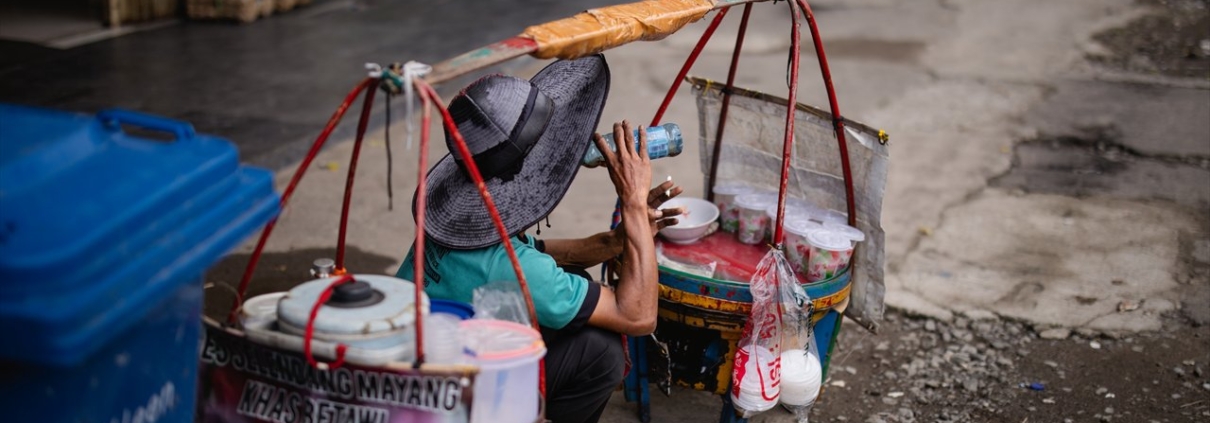The employment status debate for Indonesian online motorbike drivers
This is a summary of podcast that features a discussion with three trade union representatives about the employment status of online motorbike taxi drivers in Indonesia, highlighting different perspectives on how these workers should be classified and protected.
1. The Participants
- Mr. Sukat Tandika (Kemed) – General Chairman of the Alliance of United Online Drivers (APOB)
- Mr. Rusli – Central Leadership of the Digital and Transport Workers Union (SPDT)
- Mr. Ibnu Rizal Khamsy (Reza) – Secretary of the Indonesian Transport Workers Union (SPAI)
2. Context
- Several trade unions advocate labour rights of online taxi drivers
- Indonesian labour law currently recognizes only two types of workers: waged workers (PU) and non-waged workers (BPU)
- The Labour Law was reformed by the Job Creation Law and requires further reform following a Constitutional Court ruling
3. Key Positions
Mr. Kemed’s Position
Mr. Kemed advocates for a “Pancasila Employment Partnership” – a new concept that would:
- Reject the “partnership” status proposed by platform companies
- Create a special chapter in labour law for online drivers
- Accommodate both drivers seeking employee status and those needing flexible hours
- According to their survey, 20-30% of drivers want flexible working arrangements
- Ensure legal rights that the current “partnership” model fails to provide
He has submitted this concept to the Vice Minister of Manpower and requested a meeting with the Minister on 9 May 2025.
Mr. Rusli’s Position
Mr. Rusli strongly advocates for formal employment status for online drivers, arguing that:
- International labour standards (ILO conventions) support formal employment relationships
- Formal status would provide wage guarantees, leave entitlements, and severance pay
- It would give drivers bargaining power to negotiate their rights
- The “partnership” model enables exploitation
- Social security coverage would protect drivers and their families with employment injury benefits and pensions
Mr. Reza’s Position
Mr. Reza supports formal employee status under Law No.13/2003, emphasizing:
- The need for social security coverage
- Paid leave benefits, including maternity leave
- Constitutional guarantees (Article 28 paragraph D) that every citizen deserves fair income
- Current partnership arrangements lead to discrimination and exploitation
4. Key Demands
- Government intervention to protect online drivers’ rights
- The right to organize and negotiate for better conditions
- Income guarantees and fair wages
- Social security coverage
- Legal recognition of their status
- Removal of exploitative app-based programmes that manipulate drivers
5. Summary
This discussion highlights the complex challenge of adapting traditional labour frameworks to the gig economy while balancing flexibility with worker protection in Indonesia’s growing digital platform economy.
The major difference among the three trade unions centers on their approach to employment classification for online motorbike drivers. While Mr. Rusli (SPDT) and Mr. Reza (SPAI) both advocate strongly for full formal employment status under Law No.13/2003 to secure comprehensive labor protections and bargaining rights, Mr. Kemed (Alliance of United Online Drivers) proposes a more nuanced “Pancasila Employment Partnership” that would create a special legal category accommodating both those who want employee status and those who need flexible working arrangements (which he claims represents 20-30% of drivers). All three reject the platform companies’ current “partnership” model as exploitative, but differ on whether a one-size-fits-all formal employment approach or a hybrid framework would better serve the diverse needs of Indonesia’s online driver community.
Note: This article was generated using artificial intelligence technology with human assistance, based on a transcript of podcast discussions.




